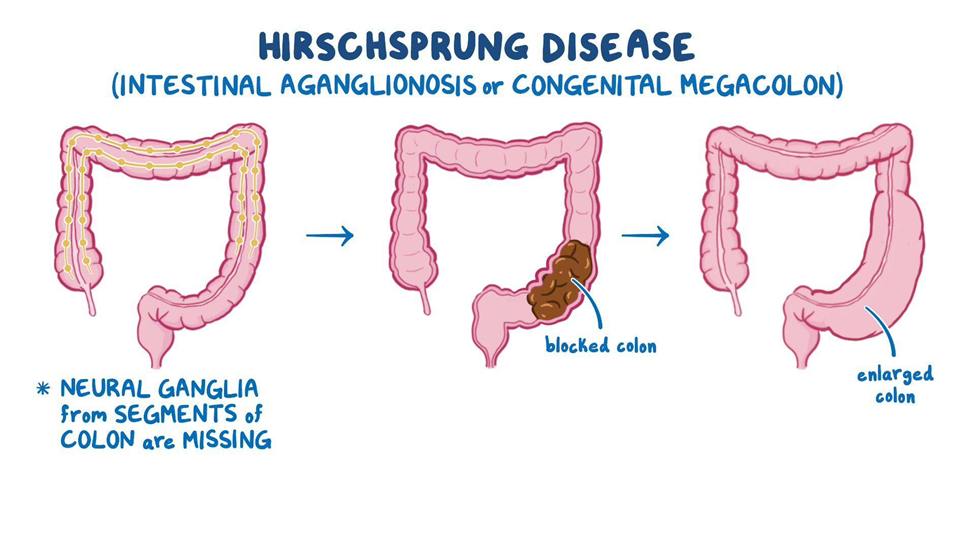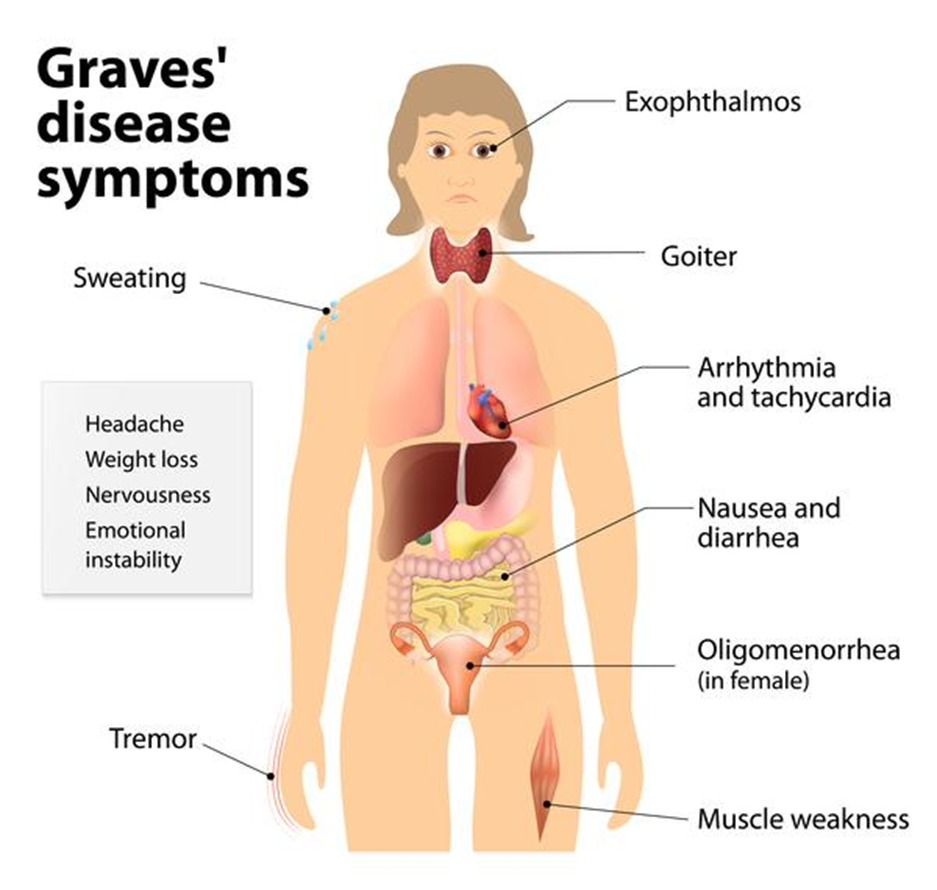The clinic nurse reviews the record of an infant and notes that the primary health care provider (PHCP) has documented a diagnosis of suspected Hirschsprung's disease. The nurse reviews the assessment findings documented in the record, knowing that which sign most likely led the parent to seek health care for the infant?
Diarrhea
Regurgitation of feedings
Projectile vomiting
Foul-smelling ribbon-like stools
The Correct Answer is D
A. Diarrhea
Explanation: Diarrhea is not a typical sign of Hirschsprung's disease. Instead, the condition is associated with constipation due to the obstructed passage of stool.
B. Regurgitation of feedings
Explanation: Regurgitation of feedings is not a characteristic sign of Hirschsprung's disease. It may be seen in other gastrointestinal conditions, but not specifically in this disorder.
C. Projectile vomiting
Explanation: Projectile vomiting is not a typical sign of Hirschsprung's disease. It may be associated with conditions such as pyloric stenosis, but it is not a characteristic feature of Hirschsprung's disease.
D. Foul-smelling ribbon-like stools
Explanation:
Hirschsprung's disease is a congenital condition characterized by the absence of ganglion cells in the rectum and a portion of the colon. The lack of ganglion cells results in functional obstruction, causing stool to accumulate in the affected area. One of the hallmark signs is the presence of foul-smelling, ribbon-like stools, often described as "fecal pellets" or "pellets" due to the obstructed passage of stool.

Nursing Test Bank
Naxlex Comprehensive Predictor Exams
Related Questions
Correct Answer is A
Explanation
A. Heat intolerance
Explanation:
Graves' disease is an autoimmune disorder that results in hyperthyroidism, meaning there is an overproduction of thyroid hormones. Common symptoms of Graves' disease include heat intolerance, increased sweating, weight loss, palpitations, and anxiety. The hyperactivity of the thyroid gland leads to an increased metabolic rate, causing heat intolerance.
B. Bradycardia
Explanation: Bradycardia (slow heart rate) is not typically associated with Graves' disease. Hyperthyroidism usually leads to an increased heart rate (tachycardia) due to the stimulatory effects of thyroid hormones on the cardiovascular system.
C. Lethargy
Explanation: Lethargy (excessive tiredness or lack of energy) is more commonly associated with hypothyroidism, where there is an insufficient production of thyroid hormones. In Graves' disease, the excess thyroid hormones often lead to symptoms of hyperactivity, not lethargy.
D. Weight gain
Explanation: Weight gain is not a typical finding in Graves' disease. Hyperthyroidism often leads to unintentional weight loss due to increased metabolism and energy expenditure. Weight gain is more commonly associated with hypothyroidism.

Correct Answer is B
Explanation
A. Test the urine for protein.
Explanation: Testing urine for protein is not a priority nursing intervention in the preoperative period for an infant with hydrocephalus. The focus is on preventing complications related to immobility and positioning.
B. Reposition the infant frequently.
Explanation:
Repositioning the infant frequently is a crucial intervention to prevent complications such as pressure ulcers (bedsores). Infants with hydrocephalus may be at an increased risk of skin breakdown due to prolonged immobility and pressure on specific areas. Repositioning helps distribute pressure, improves circulation, and reduces the risk of skin breakdown.
C. Assess blood pressure every 15 minutes.
Explanation: While monitoring blood pressure is important in certain situations, it is not typically the priority for an infant with hydrocephalus in the preoperative period. The focus is on preventing skin breakdown through repositioning.
D. Provide a stimulating environment.
Explanation: While providing a stimulating environment can be beneficial for infant development, it is not the priority in the preoperative period for an infant with hydrocephalus. The primary concern is addressing potential complications related to immobility, such as skin breakdown.
Whether you are a student looking to ace your exams or a practicing nurse seeking to enhance your expertise , our nursing education contents will empower you with the confidence and competence to make a difference in the lives of patients and become a respected leader in the healthcare field.
Visit Naxlex, invest in your future and unlock endless possibilities with our unparalleled nursing education contents today
Report Wrong Answer on the Current Question
Do you disagree with the answer? If yes, what is your expected answer? Explain.
Kindly be descriptive with the issue you are facing.
